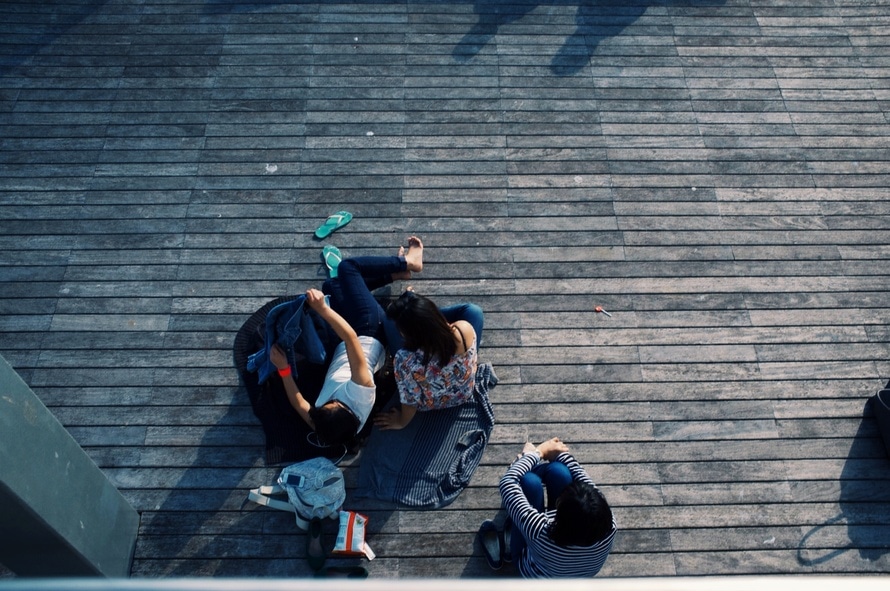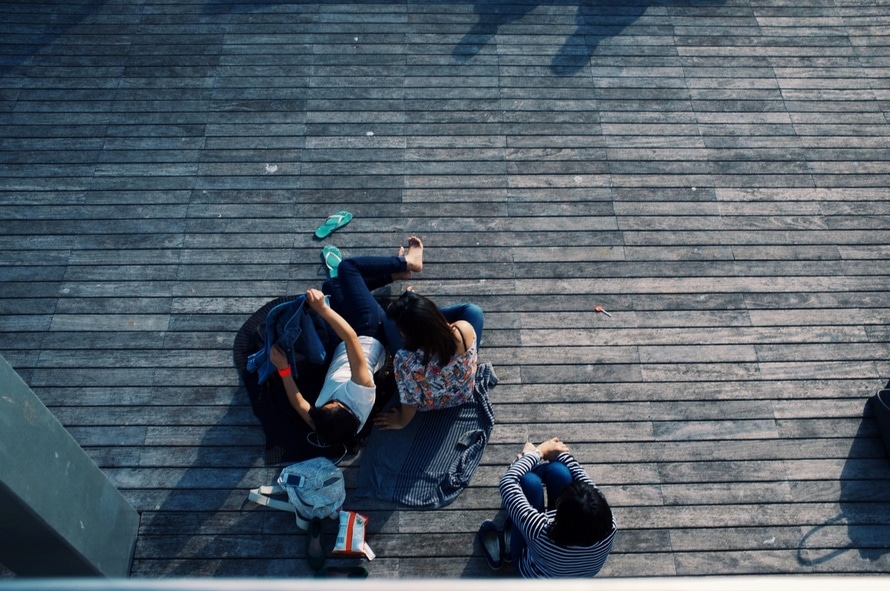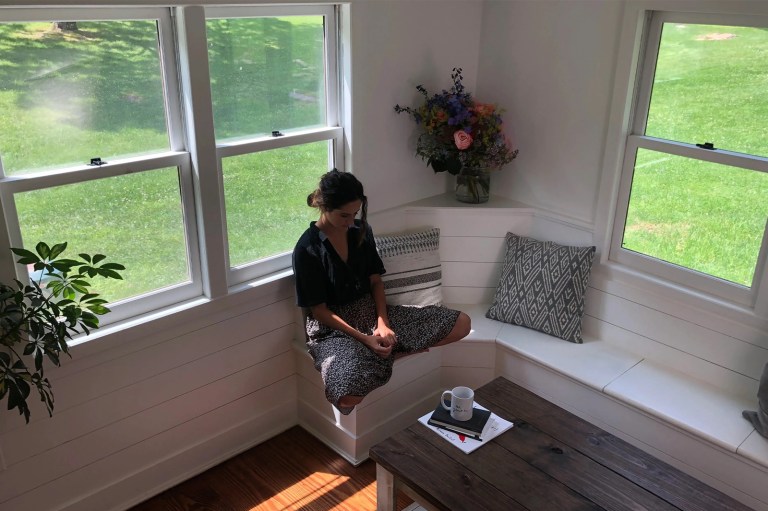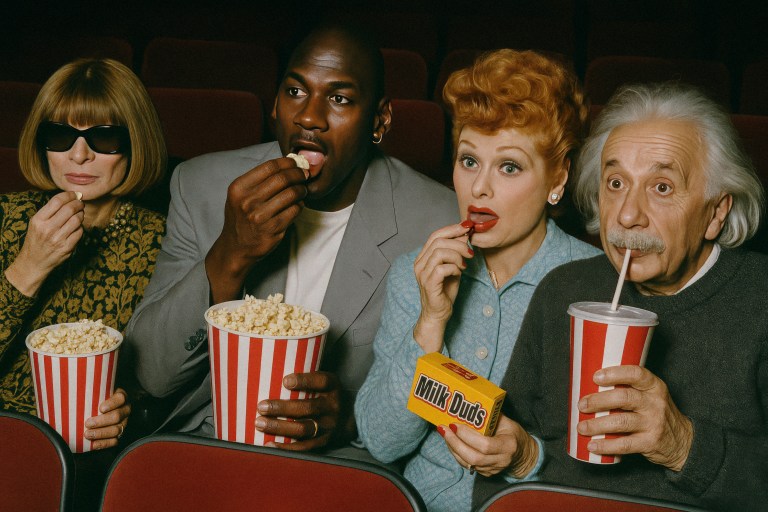
How My Best Friend Coming Out To Me Changed My Perspective On The LGBT Community (And On Life)
The labels society enforces on each and every one of us have nothing to do with who we are as people; that is, you can either be a kind and compassionate human being or a complete asshole, regardless of sexual orientation, gender, race, or any other human-designated marker that attempts to define an individual.
By ![]() Emily Fata
Emily Fata

A little over a year ago, one of my best friends came out to me. And since then, not only do I feel a greater sense of overall empathy (that I believe all humans should feel for one another), but I have made a greater effort to understand the trials faced by not only him, but the LGBTQ+ community as a whole. I’ve learned that just because you do not identify with a particular group – and that goes for any group(s) of people outside of your own – does not mean that you should treat any such group as an ‘outsider.’ Here is what my friend taught me about the LGBT community and what they go through.
People lose friends over who they are.
When my friend came out to me, it had been after we had known each other for well over eight months. This news came as a bit of a shock to me, as I figured something like that would have come up earlier on in conversation. This is not because it’s a label one has to put on him- or herself, but simply because the topic of conversation had come up multiple times.
Telling me this, he explained that he hadn’t told me because he was afraid of losing me as a friend. After coming out to his other friends, he had lost many along the way, making him afraid of telling anyone else. In my opinion, any other reason for cutting ties with a friend, particularly if it is simply a part of someone, makes you the horrible friend. Our aim should always be to support people, especially those who are closest to us. I found that by broadening my understanding of what he was facing, it enabled me to do just this to the best of my abilities.
By talking about what he is experiencing, especially in regards to something I can’t understand from a firsthand perspective, I have not only been able to empathize to a far greater degree than I would have if I closed myself off to such explanations, but I also feel like I am more capable of being an understanding, compassionate person by being consistently open to these intricacies I would have otherwise not even known about.
It’s not just about accepting, it’s about equality.
Being a hopeless romantic, I’ve always had a special spot in my heart for equality on the topic of love. Having experienced how wonderful it is to fall in love and be able to carry on a relationship without any hindrances, I can’t imagine what it would be like to be unable to or to be afraid to be with someone who I have fallen for.
It’s horrible, it’s unjust, and it goes against every person’s right to freedom.
Opening my eyes to the struggles of the LGBTQ+ community has also made me more aware of many of humanity’s inherent dilemmas.
“It’s cool that you’re gay, I just don’t want my kid to be gay.” The other day, someone told this to my friend. To me, this seems contradictory. People can claim to accept others on the surface, be it to avoid judgment or because they don’t really understand the deeper issues of what they are saying, but it’s not true acceptance in many cases – it’s a ‘surface acceptance,’ of sorts. By opening your eyes to such surface acceptances such as these, we can think before we speak.
I have seen how something like this casual (though cringe-worthy) statement can make someone feel and it has made me think about the words I choose to use on a daily basis. Likewise, it has also made me increasingly aware of the words that other people use in careless conversation. It’s not about a specific example of a word or phrase people often use, but simply opening your eyes and ears to how what you say can affect the people around you. This is not just about comments about the LGBTQ+ community, but also in regards to generally ‘Othering’ people you believe to be different than yourself.
Though perhaps unintentionally so, saying things like this can cause people avoidable emotional harm.
It’s honestly not something that should ever be a societal issue.
Just as I’ve realized I should watch what I say, I likewise have found that it is crucial to avoid any stereotypes. Would you ask a new straight acquaintance if while having sex, they prefer to be on top or bottom? That they must love shopping, and consequently have to help you pick out a cute new outfit? Or that you also know a straight single person who you “can totally set them up with”? Come on, you know the answer is ‘no,’ so why say it to anyone who isn’t straight? That’s simply not fair and although it may not be the intention, it functions as a way to ostracize members of the LGBTQ+ community.
By feeding the stereotypes, I’ve seen firsthand the repercussions of how saying things like this affect my friend. Because I’ve seen him laugh it off in front of the people who have said or suggested any of these things, and then mull over it afterward, I know that just because someone shrugs these words off, does not mean that it hasn’t hurt them in some way.
When you have a friend that you care about, you want to do everything you can to make them happy. It’s what you know they would do for you, too. I’ve found that something as simple as telling people (non-confrontationally and politely as possible, of course) that what they’re saying is basically ridiculous, I not only feel like I’m doing my part to help them understand that their words are having potentially negative repercussions, but also doing what I can to be the best friend that I can be.
Most importantly, my best friend has made me a better person not because of a label he was branded with, but simply because of who he is.
The labels society enforces on each and every one of us have nothing to do with who we are as people; that is, you can either be a kind and compassionate human being or a complete asshole, regardless of sexual orientation, gender, race, or any other human-designated marker that attempts to define an individual. We are not our labels; we go so much beyond that.
That being said, I find it amazing that despite the too frequent snubbing of society, the ridiculous typecasts, and the overall misunderstanding of who he is as a person, my friend is still able to be one of the most wonderful individuals I have had the pleasure of knowing. He doesn’t retaliate because of what people say with equally ignorant things. He doesn’t judge based on their supposed differences. Because of his slightly different perspective on the world, he’s unconsciously helped me become more conscious of how my words, actions, and even my very thoughts affect everyone around me.
Just as with any of my other friends, it is because of his personality, caring heart, and loving support of his friends that we get along so well. I love my friends because they make me a better person and I feel that in turn, I can influence them in some positive way, as well. It’s not about the shopping trips. Not the boy talks. None of that – that’s all so trivial.
What’s most important to me is to surround myself with people who are kind, who are compassionate, and who have a love for life that instills the same kind of feelings within myself. These are the kinds of people we should all be striving to encircle ourselves with. These are the kinds of people who we can hope will make us all around better people. ![]()











